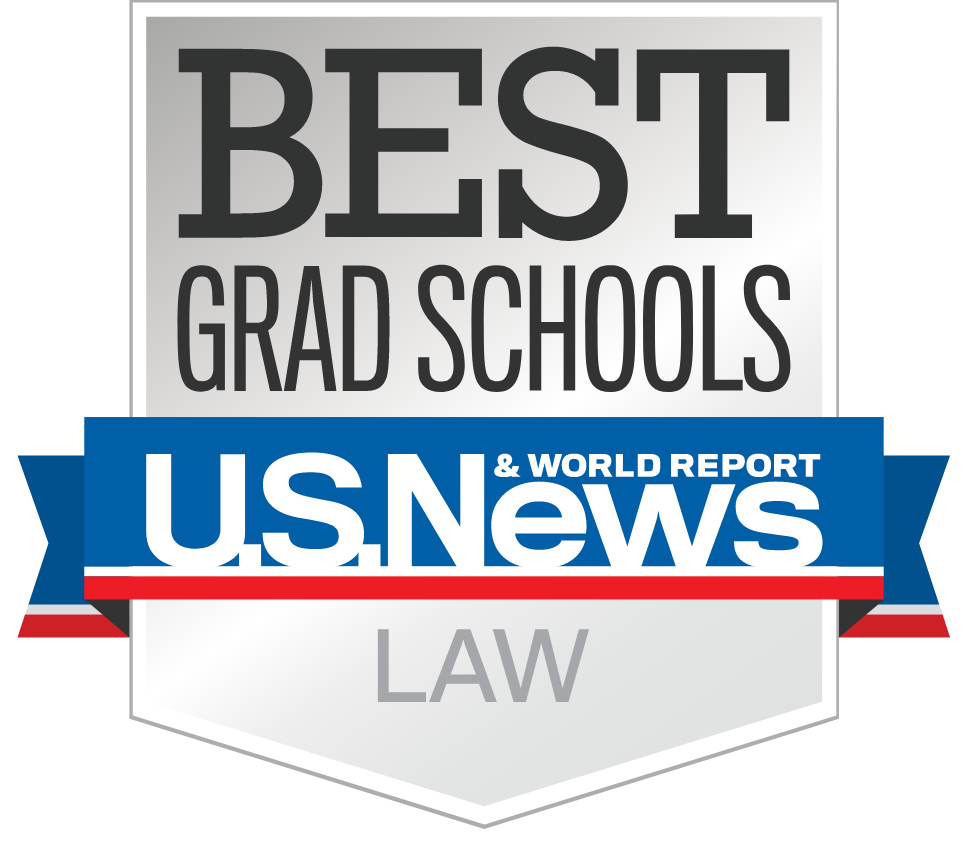US News extends rankings survey deadline; which law schools will file?

Adjacent image from Shutterstock.
Updated: After years of complaints about the U.S. News & World Report’s law school rankings, some deans started announcing in November that they would not respond to the publication’s annual survey. And they were not swayed to opt back in when methodology changes were shared this month.
U.S. News recently extended the survey deadline to Jan. 27. The ABA Journal asked all ABA-accredited law schools whether they planned to submit the survey. Out of the 117 schools that responded, 30 said they would not, and 23 were undecided. A chart with the information can be seen here.
U.S. News posted a letter Jan. 2 explaining that schools not submitting surveys would still be included in the rankings. Those metrics will focus on public data from the ABA Section of Legal Education and Admissions to the Bar, which is responsible for law school accreditation. Schools that submit surveys will have more detailed profiles, the letter said.
Last week, the publication informed deans about further modifications, including eliminating employment rates, average debt at graduation and spending on instruction from rankings criteria, according to a Jan. 13 letter shared on TaxProf Blog.
Many of the deans opting out of participation claimed U.S. News relied too much on reputation rankings and spending per student and classified graduates with school-funded fellowships as unemployed.
People may care less about the rankings this year because of the methodological changes, says Mike Spivey, a law school admissions consultant.
“But I’d bet that three years from now, we’re right back to the rankings arms race. As much as people want to say the rankings are horrible and flawed, academics and prospective students are very much interested in what their schools ranked,” he adds.
 Related article from ABAJournal.com: “Here’s what could have been behind the shake-ups in US News rankings, say some deans”
Related article from ABAJournal.com: “Here’s what could have been behind the shake-ups in US News rankings, say some deans”
According to Spivey, small fluctuations in a school’s rank are meaningless, but potential students often take them seriously. He wishes law school rankings were released in the summer, after incoming students make law school decisions, rather than the spring.
In the Jan. 2 letter, U.S. News chief data strategist Robert Morse and vice president of data information and strategy Stephanie Salmon wrote that more data benefits everyone.
“Similarly, we call on all law schools to make public all of the voluminous data they currently report to the ABA but decline to publish, so that future law students can have fuller and more transparent disclosure,” the letter states.
Some but not all of the data from annual ABA questionnaires can be found in Standard 509 Information Reports, reports on bar passage outcomes and reports on employment outcomes.
There has been overlap between U.S. News surveys and ABA questionnaires, says Debra Moss Vollweiler, a Nova Southeastern University Shepard Broad College of Law professor. She advises consumers considering law school to look at a variety of information sources.
“I think the whole situation has brought attention to the rankings system and how they happen. Now the announcement they will be changing the rankings system is more information for consumers to understand the information they are using,” she says.
Yale Law School on Nov. 16 was the first to announce it would not submit a survey to U.S. News. The next announcements came from law schools at Harvard University and the University of California at Berkeley.
Yale is No. 1 in the rankings, Harvard is tied for No. 4, and Berkeley is in the No. 9 spot. However, schools in different tiers also decided not to fill out the upcoming survey, including ones ranked below 100, such as Atlanta John Marshall Law School and Southwestern Law School.
“Until Yale said ‘We’re not doing this,’ it was very much a foxhole mentality. The law schools couldn’t come out and say ‘We’re not doing this’ unless they did it in a collective way,” says Kyle Fry, president of the Iowa State Bar Association’s Young Lawyers Division.
Fry co-wrote a 2020 vision paper with Law School Transparency, a nonprofit group recently acquired by the Law School Admission Council. The paper suggested changes for U.S. News rankings such as replacing faculty resources metrics with an “efficiency metric,” which would be based on tuition revenue and the number of long-term, full-time, bar passage-required or JD-required jobs earned by graduates in a given year.
“That way, you’d get an idea about what schools are spending to put students in high-quality jobs,” Fry says.
See also:
ABAJournal.com: “Last T14 law school announces stance on US News rankings; which two are staying in?”
ABAJournal.com: “More top law schools boycott US News rankings, but some lower-ranked institutions are reluctant to withdraw”
ABAJournal.com: “US News changes its rankings system amid boycotts by most top law schools”
Updated Jan. 26 at 8:30 a.m. to add additional law school responses.



